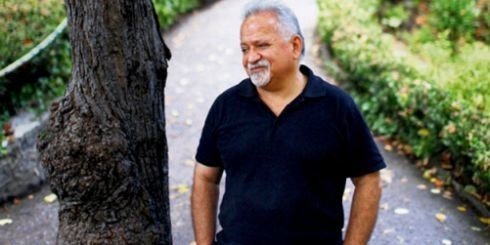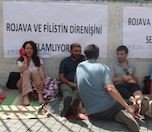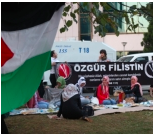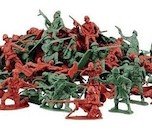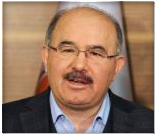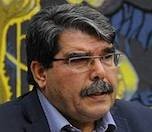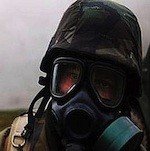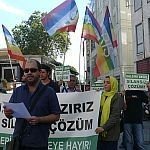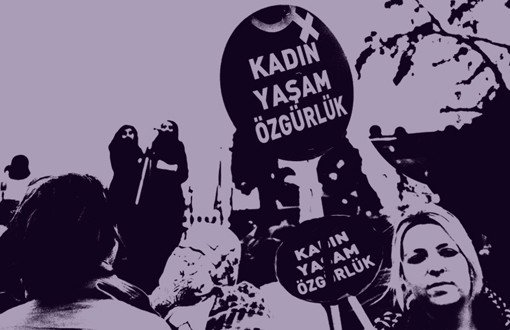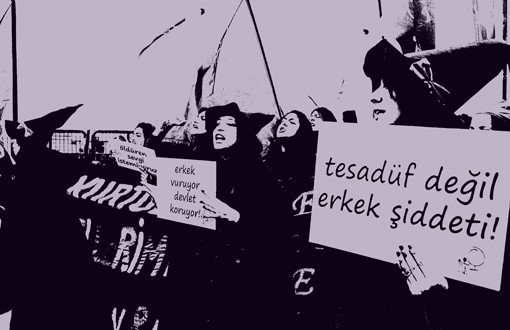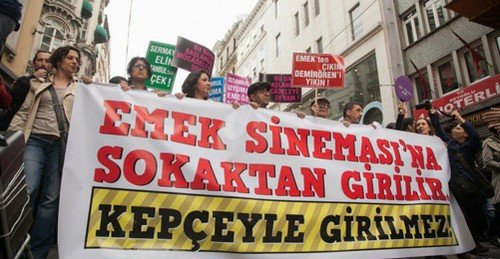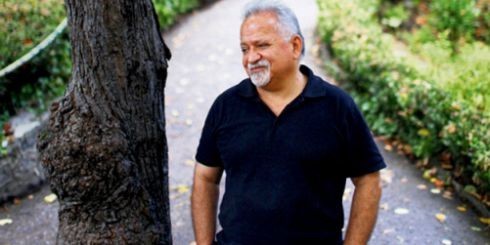
bianet interviewed Abbas Vali, professor of sociology at Bosporus University, on the current events in Syria and its context in the world politics. Vali considers Turkey’s foreign policy as failure given the situation of Rojava, Obama’s decision to delay military intervention and Asad’s use of chemical weapons. One of the reasons for this failure, as Vali puts it, is the weakness of internal political opposition that impedes the government to work efficiently. Asserting that Turkey’s prominent objectives to support a military action in Syria is to prevent the foundation of an autonomous Kurdish region in Rojava, Vali thinks that Turkey has done wrong by aligning the peace process with PKK and its foreign policy towards Syria.
According to Vali, the key to prevent a military operation in Syria is to negotiate with Russia and Iran. A resolution without a military operation also seems to be possible if the U.S. Congress can work on a decision that would satisfy the needs of all parties.
1. Which parts of the Syrian conflict had been rendered invisible by the international or/and Turkish media? What do we need to know more, as in more than what the media shows? What has remained unseen in Syria?
A couple of weeks ago I was in London and I was more directly following what we might call international media there. It caught my attention that there was little attention paid to the Kurdish question in Syria. Syrian conflict was seen in international media as a conflict of an opposition and Assad’s government. However, this opposition is very differentiated internally in political and ideological terms, and also differentiated regarding their demands and outlooks. There was no discussion of the exact political and social relationships in the Kurdish region. In fact, when the first wave of violence perpetrated on the Kurdish community by Nusra, I was looking at papers such as the Guardian and there was very little reflection on that. They don’t look at the ethnic differentiation within Syria; they only look at provinces given to Salafis and what Salafis do and want. Provinces given to Ikhwan, provinces given to the National Army and so on so forth. But as far as I can tell, Kurds are not in the focus.
As the Turkish media is concerned, the bulk of the media unfortunately treats the Kurdish question in Syria same way as the government does. The boundaries and parameters of the Kurdish question in Syria are defined by the Kurdish question within Turkey. I assume that this is a continuation of the policy that the Turkish government has lately adopted.
If you look at last 18 months or so, the Turkish government’s policy, in particular Mr Davutoglu who was presiding over various gatherings with the elements of Syrian opposition in Istanbul, was focused towards either excluding the Kurdish opposition or marginalizing them, bringing them under such condition that they have no strategic or functional autonomy. This was the policy that the government pursued; I think it did not pay off. In fact, consequently it encouraged the Democratic Union Party (PYD) to go lot more in its on way and try to carve out a field of operation for itself. When the Turkish government realized that their policy is backfiring, they invited Mr Saleh Muslim (the leader of PYD) in order to negotiate, but I think Saleh Muslim is currently in a stronger position than he was 18 months ago.
I think Turkish policy, despite the fact that it had once been very experienced because of their experience with Iraqi Kurdistan, the Kurdish Regional Government (KRG), and the requirements and politics of KRG, that relationship with Iraqi Kurdistan was designed entirely through the perspective of the government’s relationship with the PKK. This mistake was repeated once again in Syria and I think Mr Davutoglu does come to realize that this was a grave mistake. Consequently, the government is now craving for military action in Syria. I would say that the Turkish press has largely followed this line so far. This has been particularly encouraged because of the affinity between PYD and the PKK. This is one aspect. The other aspect is that there is little attention paid to the composition of the Arab opposition to the Syrian government. This comes from the fact that the Ikhwan has been very prominent in the Turkish government’s calculations and approach regarding Syria.
What has been given prominence and what has been left out or marginalized by the media had very much to do with that kind of vision and with what has been envisaged for Syria. I think this envision is now changing, or has changed. There will be forces and situations that are going to emerge which will require more urgent attention.
One thing also to be added is that because of the conduct of the government, the Syrian conflict has largely been represented through humanitarian cases. Consequences of politics such as atrocity and displacement have become more dominant in the press rather than sober, logical discussions regarding political power relations behind this conflict.
2. You already mentioned that the Kurdish issue has been overseen. My next question is about Rojava, the Syrian Kurdistan. In alternative Turkish media sources it has reported widely that horrible massacres have been going in Rojava. How did Rojava arrive to its current state? What is the historical context of Rojava within Syria, and how would you interpret Rojava’s relations to other parts of Syria? Most importantly, how do you see Rojava’s future? In the current conjecture, does Rojava have a chance to became an independent state? What will be its status? How will its destiny affect the Kurdish population in Turkey?
I don’t think that Rojava has a chance of becoming and independent, sovereign entity if you want to speak in the language of politics. It doesn’t have that chance, nor do I think that it is actually their intention to go that way; you just can look at the politics and ideology of the Kurdish National Congress, which PYD is part of, and there’s no discussion of independence. But the idea that it may become an autonomous region, similar to which exists in Iraqi Kurdistan, is very likely.
There are a number of important political factors to be taken into consideration. The first one is the outcome of the Syrian crisis; what will happen to Assad’s regime and its implications for Syria as a whole. Is Syria going to be parceled up, is it going to be divided to particular zones? Zones of Hizbullah and Iranian forces, zones of Ikhwan and Saudi Arabian forces and perhaps another one by the Kurds in the region.
Let’s come back to the problems immediately facing this highly likely project of autonomy of the Kurdish region. First is the Turkish state sitting on the border with a big army, and contemplating a situation similar to what happened in Iraq in March 2003. If a similar situation arises, Turkey doesn’t want to repeat that mistake of not going in. I think that mistake back in 2003 cost them a lot. It may have satisfied many anti-war activists and believers of peace, but in terms of real politics, I think it cost Turkey a lot and they don’t want to repeat that mistake.
If Turkey goes into Syria, one of its major objectives will be to prevent the possibility of the emergence of an autonomy in Rojava. But then, there’s of course other ways in which Turkey is trying to stop that from happening. Turkey is in alliance with the KRG but at the same time Turkey is using KRG as a proxy force in Syria. I think using PYD as a proxy force has a consequence of laying out a field of political action before a military intervention; a field of political action in which PYD and KRG will be competing powers. So far PYD had the upper hand, it has not allowed the forces around the KRG to cohere and form a viable competing force.
A lot of it also depends on how far the KRG is going to prepare to become more than just a proxy force, are they physically going to be there. There’s another clearly emerging political factor that will have important repercussions regarding the Kurdish region in Syria. The new development that is taking place in Kurdish politics is the unhidden and increasingly obvious competition and rivalry between the KDP and PKK. That will obviously have serious consequences for the region. You can see this competition and how this contest for power influenced and dominated the arrangements for making of this Kurdish National Congress in terms of selection of numbers, agenda of the country; this is a battle between the KRG and the PKK. At the present, Turkey is using everything at its disposal including the proxy power of the KRG to not allow the PYD to entirely dominate the region and set the agenda for its future.
There is an economic aspect to it as well. If you look at the conflict between Nusra and PYD, the focal point of this conflict is the control of oil producing areas. PYD would seriously be interested to have control of more oil fields, and that would be a nightmare for Turkish strategy. If you have the financial resources and create an autonomous region, you will be in a strong position. If you do not have financial resources, then you’ll be dependent on other powers around you. If you look at the locations of the battle between Nusra and PYD, you will see the increasing importance of oil. I think PYD has been able to dominate certain parts of that area so far, although not entirely.
I think if the war starts, if the Americans repeat the example of the Balkans if they’re going to ‘hit’ Assad so that his power will be reduced, his military power will be reduced and the regime will be down on his knees. If they are going to do that, it will be an opportunity for PYD to consolidate. This is why the AKP government is almost itching for military action.
Quite lot of what I am saying in this particular point could be speculative because we still don’t know what shape the American military and political strategy will take.
3. You sort of answered my next question but I want to go into more detail. When U.S. occupied Iraq it was argued that PKK benefited from this occupation as it eased the transportation of arms and people on the Turkish-Iraqi border. From what I understand, you agree that military action towards Syria will bring a similar consequence in terms of Rojava. Van MP and DTK co-chair Aysel Tuğluk claimed during her speech on September 1st that Prime Minister Erdoğan is hoping to occupy Rojava with a possible U.S. backed military intervention. Do you agree that this is the case and that Turkish government’s enthusiasm to intervene?
It is not a question of agreement or disagreement; I think it strategically makes sense from the Turkish point of view. This is what Turkish strategists and policy makers consider as being the direct and immediate threat. There is no doubt that Turkey would love to create a zone of influence there.
4. What are other possible interests of Turkey then, other than the Kurdish question in Syria?
I think their policy in the Middle East—I’m not just the only one saying this, your papers are full of it—has somehow been unsuccessful. We have seen examples of Egypt and Palestine; we have seen the radicalization and the failure of the peace negotiations towards a peace between Palestinians and Israelis. Israelis are intransigent and have again galvanized Hamas and radical groups; in these circumstances been pushed back towards Iran. Being pushed back towards Iran means that what Turkey was hoping for in Palestine seems to be very much hanging in the balance. Israel is not helping by not stopping the building of settlements, which is a major stumbling block to any progress towards peace that is going on.
On the other hand, aside from the Kurdish question, Turkey would want to have a big say in the shape that the future Syrian government will take. It is not difficult to understand what would be Turkey’s preferred alternative; a regime ruled by the section of the army and security forces, and Ikhwan and so on and so forth and the compromise with Saudi Arabia over the marginalization of Syrian Alawis.
The idea that Turkey and Saudi Arabia would both agree on is that there shouldn’t be another Iraq. The objective that would bring Turkey and Saudi Arabia closer would be any arrangement that will reduce or marginalize, ideally oust Iran’s influence, that’s it. Reduction of Iranian influence in Syria is something Turkey, Saudi Arabia, and Jordan all want. In that respect I think the Syrian case gave Turkey another opportunity to re-galvanize its politics. There’s a wider spectrum, a field of interest upon which Saudi Arabia, Egypt, Jordan, and Turkey converge in one way. That may allow Turkey to galvanize its currently weak foreign policy.
I think everybody knows that Turkish intransigence in accepting the outcome of the developments in Egypt may have, and indeed has, been an acceptable moral stance but it has not been good politics given the developments in the region. I think Turkey is being advised by your senior journalists to tone down its belligerent attitude and harsh critique regarding the military. I don’t think that it can be done immediately but I think if Turkey gains some of the objectives that it wants in Syria, it will have a good ground to shift its political position.
It is often said—and there is truth in—that foreign policy is a certain continuation of internal policy and here in Turkey you can see that. In my opinion, one of the reasons for the present stagnation of Turkey’s foreign policy is the very weak opposition within Turkey. The opposition here in the parliament and political parties have been terribly ineffective. They have not been able to hold government to the task, they have not been able to push the government, they have not been able to make government rethink and take the configuration of power relations inside Turkey very directly into consideration while making policy. The weak opposition in a democratic political process is not good for foreign policy.
5. Whether there’s a military operation or not, if the Assad regime is taken down, what kind of a new regime would we see in Syria? How will the political atmosphere evolve? Would Syria be trapped in a politically unstable period, like Egypt?
Obama’s decision to delay military action and ask for democratic mandate from the Congress of course has internal consumption for American politics, that is without doubt, but there are other reasons.
I think this decision will give Obama time for very crucial negotiations with various forces, governments, and powers that can have a say in the future of Syria. There are, in my opinion, serious negotiations going on with Iranians. The French are part of it, part of the EU apparatus may be part of it, definitely Americans are part of it; the idea is to try and convince Russians and Iranians to agree to Assad’s departure before the military action. This is clearly the objective of this secret diplomacy. The French are very obviously talking about it, the Americans are more discrete about it. But would it be necessary to have punitive military action if Assad leaves? After all, it is said that in the latest news that the German secret service has the tape of a secret conversation between the Iranian ambassador and a member of Hezbollah, saying that Assad is losing it and that is why he has ordered this chemical attack that this has been a serious mistake. I read it on the news today. If that is the case, and if we hear inside Iran a character such as Rafsanjani—who is a very, very important figure in the regime—says in open speech that Assad is guilty of using chemical weapons.
This means that Iran doesn’t have a uniform perspective when viewing Assad. I think these differences can be exploited. The Congress is going to look at and debate this issue on September 10-11, there’s a week and as they say a week is a long time in politics. If they could convince the Russians and the Iranians in this week by what may be called a certain political engineering, the possibility of a military strike could be averted. A regime without Assad that is run by parts of the army and security apparatus that has remained clean could be the solution.
This solution can also be pursued after a possible military strike. I think the point is that Hamas’ political activities are going to be successful before the Congress looks at the issue. So, we shall see. I think Turkey wants very much that such a possibility at present does not arise because I think Turkey wants military intervention.
6. In your answer you mentioned a tape saying that Assad has lost it and that’s why he ordered the attack with chemical weapons of mass destruction. I want to hear your opinion about the usage of chemical weapons. Do you believe that the Assad regime would use chemical weapons of mass destruction on civilians? Does Syria have the political and social atmosphere for that to be possible?
Look, usage of chemical weapons internationally has been condemned and for a long time. Using it is criminal. Clearly, using it in situations of war is the consequence of serious miscalculations. However, politicians do make amazing decision in amazing conditions.
We have an example of the usage of chemical weapons in Iraq. They used it for the first time against the Iranian army when Iranian army was making gains and advances right after it pushed back the Iraqi army to the Iraqi territory. I think the West knew that Saddam’s government was using the chemical weapons selectively in various areas but they turned a blind eye. This time, the situation is different; a battlefield somewhere in the Iraqi or Iranian territory is very different than a local neighborhood in Damascus
I’m not looking at it in terms of whether Assad is capable of doing this or not, whether he is an human being or not. I’m saying that Assad—as a political actor who is in a seriously difficult situation—is determined to save a regime by all means possible. I think then chemical weapons would also be a method.
I am just saying this, I have absolutely no hard evidence. As evidence I can only rely on what I read in the press. The German experts say that the Syrian opposition is technically incapable of using chemical weapons, that’s an idea to consider. The French say that they have hard evidence that Assad has used it.
For the first time we see that there are divisions in Iran; the newly elected president of Iran only condemns the use of chemical weapons, he doesn’t specifically say who used them. A figure like Rafsanjani—an installer of the Islamic regime, was elected president twice, man who was and still is a king-maker in Iran to a certain extent—comes out and openly declares that Assad has used chemical weapons although subsequently they denied, but it has already made its political effect.
So I would say that there is a good chance that the regime has used it although you can be a hundred percent sure. The important thing here is not whether this is true or not, the important thing is that what political use of this is going to be made of it and by whom. Clearly, I think the West has stronger grounds about chemical weapons in Syria and than they did in Iraq. The evidence was flimsy then, and in Iraq the case for war had already been made in America and Britain, they were only looking for excuses but now I think the situation is different.
There’s strong reason to say that the regime has used it than not used it, that’s all I can say. We shouldn’t look at people like Assad in terms of their human qualities, we are talking about politics, we are talking about use of force for political gains.
7. As any region with political and social unrest would experience, borders around Syria are becoming indistinct and masses of people change locations. There are many refugees moving around the Middle East, either to Turkey or Lebanon or Jordan. How do you foresee the long-term consequences of the movements of Syrian population? Do the religious and ethnic backgrounds of people affect these migrations? For instance we know that Alewite refugees refuse to stay in refugee camps in Turkey.
I think the ethnic and religious make up of the refugee population would only be important in terms of the choices they are making about where to go. The Kurds would prefer to go to the Iraqi Kurdistan, Alawites are coming to Turkey, maybe others would want to go to Lebanon, or Jordan, or what have you.
So it is clearly important, but I am only hoping that this displacement is going to be temporary because none of these countries, Turkey or Iraqi Kurdistan, are going to be able to give permanent residence to these people or absorb them in a way that will be similar to their lives back home.
I think that if there’s settlement in Syria, refugees will be going back. In what condition they will find home, that is another issue. I’m not quite sure about the Kurdish refugees though. Given the uncertainty about what may happen to Rojava in the event of Turkish intervention I would say that their situation in the long run is more uncertain.
8. There’s always stress on international community and reactions expected from it. When there’s large-scale violence, it is argued that international community should react and condemn. How can this conflict be resolved without a military intervention? UN is often accused of remaining distant. What should be the modus operandi of international community?
When you’re talking about UN, you’re talking about five powers. Within these diplomatic relationships, those who don’t fall in line are Russia and China; they have their own specific interests and calculations. I think the current diplomatic move may be trying to address those interests. I don’t know whether the Russians are going to buy it, probably the Chinese are less difficult to convince.
Russians, in my opinion, although their attitude towards Syria is consolidated, don’t have direct strategic or military interests. A lot of people say that they have a military base, that naval base is defunct and insignificant. In my opinion Russia is using Syria as a trump card but what they want to do with this trump card has been unclear so far. Is it that they want a lot of economic rewards, lot more than Saudis were trying to give them, or is it other things that they want?
In part I think if a deal is made about Syria with the Russian participation, it will also build new ground for nuclear negotiation in Iran. I think that’s something Russians would want though I don’t know whether Americans are prepared to go as far. ,Iranians would only agree probably to any concession if the American, Western attitude, especially the EU change towards them. To agree to have a new approach to Iran’s nuclear issue is something Iran wants, and I think Russians want it too. This may be a part of the agenda or not. Russia is using Syria not in terms of long-term strategic interest, but as a trump card in order to bargain and bargain hard, as much as they can. But what they want to bargain for, I do not know.
As I said, when you say UN you mean the Security Council. The bargaining will go on there but I think the Americans are not going to wait for it this time. If they have the mandate from the Congress, I think we should expect a positive vote for military action but that military action should be viewed in this way; either it’s going to be punitive or it’s going to be crippling. If it’s crippling then it means that it’s going to lay the ground downfall of the regime. Military action without active politics never gets anywhere, as we saw in the First Gulf War.
I have little doubt that they will have the mandate from the congress, because the American republicans have been pushing for it. Only last night Senator McCain was talking and it wasn’t on whether they should agree to military action or not, he was basically talking about how hard Syria should be hit.
If they take punitive action in Syria without militarily supporting, arming and increased support for armed forces of Syrian opposition, it’s not going to be that effective. If we look at the discussions from last night, by American politicians who were talking to the media after meeting with Obama, they’re basically saying that they’re going to have punitive action but they’re also going to support the opposition more directly.
The Syrian issue is already an international issue; it is broken out of national and regional boundaries the regional forces have been unable to contain it. International forces have been unwilling to directly take part in it, but I think this chemical attack is a good ground for them to produce more active international reaction.
9. If a military intervention takes place, how would it work out? Would it really resolve or ameliorate anything?
Military intervention is merely an instrument. Military intervention can never achieve its objectives if it is not supported, backed up, and continued by active and effective politics; that is the point.
Otherwise, yes, there is no doubt that the Americans have the military muscle and power to deal a very severe blow on the Syrian army. It is argued that military strike will only consolidate Assad’s position. I don’t agree with that; Assad’s position is not strong. I think a huge, severe military action can seriously undermine Assad’s position, but he can hang on as Saddam did from 1991 to 2003. He can hang on if there’s no active or effective politics behind a military action.
The situation in Syria is different; in the days when Saddam was hit in 1991, it was very obvious that regional powers like Saudi Arabia, Turkey, Jordan, and Egypt did not want a regime change. Saudi Arabia did not want another Shia state, and Turkey was not able to contemplate Iraq without a central government; fear of the Kurdish question within the country was paralyzing to make such a decision.
The Syrian case is more clear-cut; there are no fears that existed in the Iraqi case. If military action is followed by active politics, it may result in the desired consequences of those who carry it out but if it doesn’t follow active politics, it will only make things worse.
10. Do you personally believe that there will be active and effective politics behind a possible military action?
The region is in a very difficult situation overall. Look at Egypt, Libya, and Tunisia. Jordan and Lebanon have been destabilized. The outcome of developments in Egypt is very worrisome, it seems like it’s only going to become more of a dictatorship. Iraq is seriously unstable. I think regional powers like Saudi Arabia, Jordan, and the Arab Gulf states are going to push the U.S. and the EU towards an action that will bring some sort of stability to the region. This region is in a dangerous situation, there’s no doubt about that.
11. I think this is all I wanted to ask. If there’s anything you’d like to add, anything that I have missed out, please feel free to add anything you’d like to say about the conflict in Syria or its relations to Turkish politics.
We have covered enough in that respect, I mean we can go on talking about it for a very long time. All I can add is that Turkey is currently facing a situation in which wrong calculations of foreign policy affect important political developments regarding internal politics.
I think government’s wrong approach and calculation towards developments in Syria and Rojava have shaped its current attitude towards the peace process with the PKK. The Turkish government is stalling; they don’t want the peace process although they fear to admit it.
The main reason for the stalling is because the government is not sure about what’s going to come out of Syria; whatever comes out of Syria will have direct consequences that will affect the PYD, PKK, developments in Iraqi Kurdistan, and Egypt and of course Turkey’s relationship with and position towards each one of these powers.
I think if Turkey had taken a more creative foreign policy with a better understanding of the long-term developments in Syria, the government could have used the present situation as an asset. Now, it is only a liability to internal politics. I think there are two important factors shaping the Turkish government’s attitude towards the peace process with the PKK.
The first one is the outcome of Gezi Park developments that have pushed the Turkish government to a defensive position; they’re trying to rebuild lost ground before the elections. In so doing, they don’t want to give ground to the opposition to criticize AKP for being unpatriotic and un-nationalistic for selling out to the Kurds or to “the terrorists”.
Another factor is the outcome of their Syrian policy; because of the way that the game was played Turkey had very little influence other than their proxy power, which is KRG, and the powers of KRG are extremely limited.





